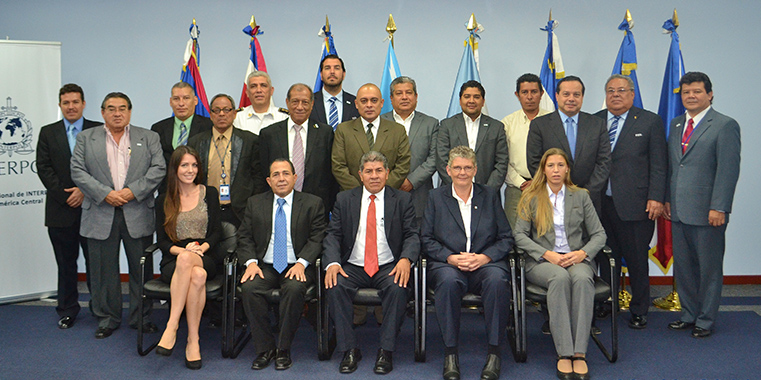By Paul Nicholson
October 17 – The fight against match-fixing took the next, and ground breaking, steps in El Salvador this week with meetings to discuss a roadmap that will make match manipulation a crime under the country’s laws. The talks in El Salvador are intended to become a blueprint for discussion with government and agencies region-wide.
Led by CONCACAF and El Salvador Football Federation officials, meetings were held with Salvadorian government representatives as well as delegations from Interpol and FIFA.
The fact that the meetings took place in El Salvador is symbolic. At the end of 2013 worldwide lifetime bans were imposed on 22 national team players in what has been the biggest international match-fixing scandal to date. Federation investigations uncovered match manipulation that occurred in international matches, including friendlies and CONCACAF Gold Cup matches in 2010. What is more concerning for the global football community is that El Salvador is a country that does not have a big betting culture.
“Fighting match-fixing is about creating strong relationships with all relevant stakeholders, such as law enforcement, legislator and football. Nobody can win this fight on their own. We acknowledge the strong efforts of the authorities in El Salvador to work on a law that makes match-fixing an act by criminal law. Not many countries worldwide have such a law in place. El Salvador could be an excellent example for good practice worldwide,” said Dr Laila Mintas, CONCACAF Director of Sports Integrity.
The San Salvador meetings were the first of their kind in the CONCACAF region and are part of a strategy of creating a joint effort to bring together all relevant stakeholders from outside of the football umbrella.
Participating Salvadoran government organisations included the Supreme Court of Justice, National Sports Institute, Nacional Civil Police and the Attorney General’s Office.
CONCACAF President Jeffrey Webb said: “We look forward to recreating this model in other Member Associations to further strengthen our position in the global fight against match manipulation.”
The involvement of Interpol and FIFA adds important weight to the initiative and helps co-ordinate thinking and connect best practice on a global level.
“The FIFA Interpol program has launched the second phase on building capacities on a national level in order to enhance the fight against match manipulation,” said Ralf Mutschke, FIFA’s Director of Security Division. “With the assistance and engagement of CONCACAF and FESFUT, we are optimistic to further build up a global network of football to respond to this challenge posed by organised criminals.”
Dr. Julie NORRIS, Interpol’s Integrity in Sport the Programme Manager, said: “We are heartened by the commitment of all stakeholders in El Salvador to tackle the threat posed by match-fixing in a systematic, coordinated way at national level and engage with their regional and international partners in football and law enforcement.”
Contact the writer of this story at moc.l1743783543labto1743783543ofdlr1743783543owedi1743783543sni@n1743783543osloh1743783543cin.l1743783543uap1743783543
